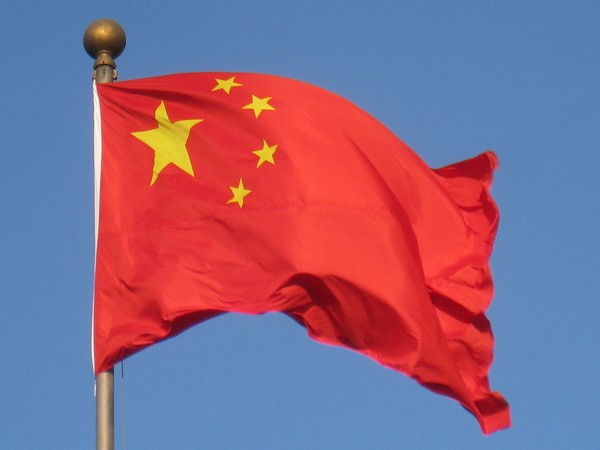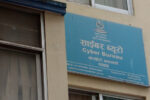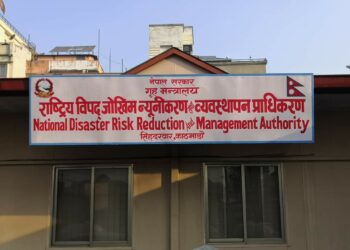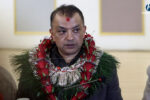China has asked Pakistan to do its “utmost” to protect thousands of Chinese workers involved in the China–Pakistan Economic Corridor (CPEC) projects as the two countries held a strategic dialogue in Beijing recently amid serious economic crisis in Pakistan.
Ishaq Dar, Pakistan’s Deputy Prime Minister and Foreign Minister, who is in China on a four-day visit, and Chinese Foreign Minister Wang Yi co-chaired the fifth Foreign Minister-Level China-Pakistan Strategic Dialogue.
That the Chinese remarks come close on the heels of the huge economic protests in PaJK is significant.
China has been backing the Left-wing organized street protests against high electricity bills and lack of supply of wheat.
The scale and intensity of the protests in Muzaffarabad, Rawalkot and other cities in J&K, Prime Minister Shahbaz Sharif approved the immediate provision of Pakistan rupees 23 billion to the region.
Shehbaz Sharif has also proposed a visit to the region to personally review the ground situation.
Protesters called off the march a day after Prime Minister Shehbaz Sharif approved a grant of funds to help meet most of their demands, which included subsidies on flour and electricity prices.
Two things stand out. First, the scenes of violence unfolding in the region have shattered the illusion of the territory being “Azad” or “Free” Kashmir, as protests over economic grievances have been suppressed by Pakistan’s security forces.
The clashes took the lives of at least one police officer, injured over 100 others, and subjecting civilians to tear gas shelling, baton charges, and mass arrests.
There is another underlying message that emerges from the recent protests, that the people there are no longer afraid of the Army.
Their demands highlighted the gaping disconnect between the government and the economic pain being endured by ordinary citizens.
The underlying issues that sparked the protests, soaring food and fuel inflation, lack of economic opportunities, unaffordable electricity rates amidst the vast hydropower potential, are systemic problems.
However, the Pakistan’s response underscores the hollowness of its claims over Kashmir.
There was nothing free about the unrestrained suppression of dissent.
The Jammu Kashmir Joint Awami Action Committee (JAAC), which has traders at the forefront in most parts of the state, has been seeking the provision of electricity as per hydropower generation cost, subsidised wheat flour and an end to the privileges of the elite class.
On 9 and 10 May, around 70 activists were arrested by police in a bid to prevent a long march, announced by the JAAC to press the government to comply with an agreement reached between the two in February 2024, triggering serious clashes in Dadyal and a “shutter-down strike” call.
Amid a crippling strike, fierce clashes between police and protesters were witnessed in different areas of Muzaffarabad.
The JAAC which is at the forefront of the protests is a grassroots organization representing traders and citizens demanding affordable electricity rates linked to the region’s hydropower generation, and subsidized wheat to combat rising food prices.
Their demands highlighted the gaping disconnect between the government and the economic pain being endured by ordinary citizens.
The fundamental reality today is that segments of the region’s population no longer view Pakistan as a credible advocate for their aspirations, having witnessed its oppression firsthand.
Police conducted overnight raids to detain around 70 JAAC activists in the run up to the 10 May agitations, eliminating key voices from the equation.
When the JAAC still proceeded with plans for a massive march in capital Muzaffarabad on 11 May, the state dug trenches and erected barriers to seal off the city.
The JAAC is an amalgam of dozens of such village, ward, constituency, tehsil and district-level units that give birth to a new generation of leaders, mostly young and hailing from the working classes, with no interests tied to the status quo.
The JAAC has traders at its forefront in most parts of the region. It has been leading a “rights movement” protesting the taxes levied on electricity bills.
This had led the committee to observe a shutter-down strike for the same reason in August 2023.
The movement demands that the electricity tariff in the region reflect the cost of hydel power generation.
Why would China back the people’s agitation there?
Beijing wants to put pressure on Pakistan to let Chinese private security agencies to be stationed there (and elsewhere in Pakistan) to guard the CPEC projects, something that the Pakistani establishment has refused to agree to thus far.
Top amongst them is and remains the safety and security of their nationals working on CPEC, for this purpose anything can be done including creating unrest there.
An article on marxist.com informs that the mass movement against the payment of electricity bills in PaJK was reported on by national Yasir Irshad, Vice President, Red Workers Front (RWF).
The International Marxist Tendency (IMT) and the RWF have been at the forefront of initiating the campaign and formation of Awami Action Committees across the occupied region. Recurring attacks on Chinese personnel working in the US$ 60 billion CPEC projects by militant groups in Pakistan has become a major concern for China.
In March this year, five Chinese and one Pakistani national were killed in a terrorist attack on their vehicle of the Dasu Hydropower Project undertaken by a Chinese company in Khyber Pakhtunkhwa Province.
China hopes that local attacks on CPEC project sites will get the deep state to accept the presence of Chinese private security agencies.
Images of the ensuing crackdown showed cities blanketed in tear gas, bloodied protesters being ferried away, cutting of the internet, armed personnel brutally restraining and arresting civilians.
Pakistan’s rhetoric about being a torchbearer for Kashmir cause rings hollow when its iron fist falls on the people.
The fundamental reality today is that segments of the region’s population no longer view Pakistan as a credible advocate for their aspirations, having witnessed its oppression firsthand.
By extension, it also signals their overcoming fear of the Pakistan Army, whose jackboot is present all over the region.
China’s involvement in this matter signals a shift in their priorities.
Top amongst them is and remains the safety and security of their nationals working on CPEC, for this purpose anything can be done including creating unrest in the region.









Comment